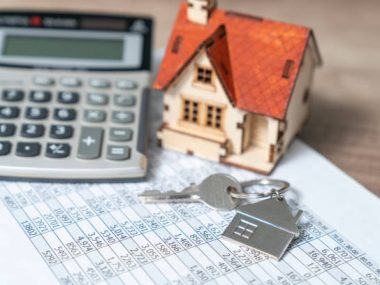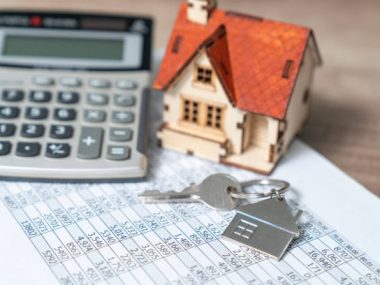Can you defer a mortgage payment? In the realm of personal finance, unexpected challenges and financial hardships can sometimes cast a shadow over our ability to meet our financial obligations.
For homeowners, one such significant obligation is the monthly mortgage payment – a cornerstone of responsible homeownership.
However, life’s uncertainties, such as job loss, medical emergencies, or economic downturns, can disrupt even well-structured financial plans.
Amidst these challenges, the concept of deferring a mortgage payment emerges as a potential solution.
Mortgage payment deferral is a financial arrangement that allows homeowners to temporarily postpone their regular mortgage payments due to extenuating circumstances.
This option can provide much-needed relief during times of financial strain, helping homeowners to navigate turbulent waters without the immediate burden of their mortgage.
But while the prospect of deferring mortgage payments can offer a lifeline to struggling homeowners, it’s essential to approach this decision with careful consideration and a full understanding of its implications.
This article will delve into the details surrounding mortgage payment deferral – from its eligibility criteria and application process to the potential pros and cons, impact on credit scores, and alternative solutions.
By exploring this topic comprehensively, you’ll be better equipped to make informed decisions about your financial well-being and your home.
Remember, knowledge is power, especially when it comes to safeguarding your financial stability.
Also Read:
How to Become a Notary Loan Signing Agent
How to Get a Million Dollar Loan
Can You Defer a Mortgage Payment?
Deferring a mortgage payment involves temporarily postponing the regular monthly mortgage installment under specific circumstances.
This option offers relief to homeowners facing financial difficulties such as job loss, medical emergencies, or economic downturns.
By deferring, homeowners can allocate their financial resources to address immediate concerns, providing a breathing space to regain stability.
To qualify for a mortgage payment deferral, homeowners typically need to demonstrate genuine financial hardship and communicate transparently with their lender.
The process involves submitting a formal request, along with relevant financial documentation.
While deferring payments can provide short-term relief, it’s crucial to understand the long-term implications.
Interest often continues to accrue during the deferral period, potentially extending the loan term and increasing the overall repayment amount.
Additionally, deferring mortgage payments may impact credit scores and future borrowing opportunities.
It’s advised to explore alternative solutions like loan modifications, refinancing, or government assistance programs before opting for payment deferral.
Homeowners should weigh the pros and cons, considering their financial goals and the potential impact on their mortgage in the long run.
In times of financial uncertainty, seeking advice from financial professionals and open communication with lenders can help make an informed decision regarding mortgage payment deferral.
Eligibility Criteria for Deferring Mortgage Payments
Eligibility criteria for deferring mortgage payments vary among lenders but generally revolve around genuine financial hardship.
Homeowners facing unexpected challenges like job loss, medical emergencies, or economic downturns are more likely to qualify.
Lenders typically require documented proof of the hardship, such as medical bills, unemployment notices, or income reduction statements.
Communication with the lender is crucial; homeowners should reach out as soon as they anticipate difficulties in making payments.
Having a history of on-time payments and demonstrating a commitment to resolving the situation can positively influence eligibility.
However, homeowners who were already delinquent before the hardship might find it more challenging to secure a deferral.
Ultimately, lenders want assurance that the situation is temporary and that the homeowner can resume payments eventually.
The eligibility decision lies with the lender, who will evaluate each case individually.
It’s important to note that while deferring payments can provide short-term relief, it might lead to accrued interest and a longer repayment period.
Homeowners should thoroughly understand the terms and implications before pursuing this option, considering it as a last resort after exploring alternative solutions.
Pros and Cons of Deferring Mortgage Payments
Deferring mortgage payments can offer temporary relief during financial hardships, but it comes with both advantages and drawbacks.
One significant advantage is immediate financial breathing space, allowing homeowners to redirect funds towards pressing needs like medical bills or basic living expenses.
This can alleviate short-term stress and prevent defaults.
However, the accrued interest during the deferral period is a notable disadvantage.
Unpaid interest adds to the overall mortgage balance, potentially extending the loan term and increasing the total repayment amount.
Moreover, credit scores may be impacted, affecting future borrowing opportunities.
It’s essential to weigh these costs against the short-term benefits.
Deferring payments can provide a safety net, but it’s not a long-term solution.
It’s crucial to communicate openly with the lender and explore other alternatives like loan modifications or government assistance.
Some lenders might offer forbearance plans that involve reduced payments or temporary interest-only payments, which can mitigate the long-term impact.
Overall, while mortgage payment deferral can be a lifeline during financial crises, homeowners should carefully consider the trade-offs and implications.
Seeking financial advice and thoroughly understanding the terms of deferral is vital to making an informed decision that aligns with their overall financial goals.
Also Read:
How Long Does It Take to Consolidate Student Loans?
How Many Car Loans Can You Have?
Conclusion
When it comes to mortgage payment deferral, informed decision-making is paramount.
While this option can provide crucial short-term relief during financial hardships, it’s not without consequences.
Homeowners must weigh the benefits of immediate financial flexibility against potential long-term drawbacks such as increased interest and credit score impact.
Open communication with lenders, exploration of alternative solutions, and seeking professional advice are essential steps.
Ultimately, the choice to defer a mortgage payment should align with individual circumstances, long-term financial goals, and a clear understanding of the potential implications on home ownership and overall financial stability.






